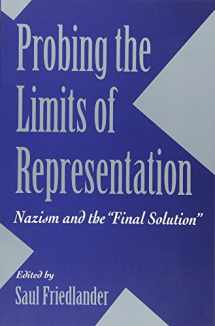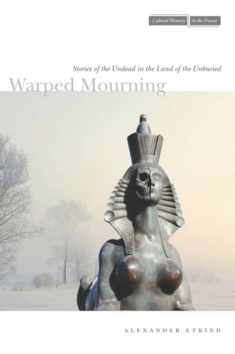
Probing the Limits of Representation: Nazism and the “Final Solution”
Book details
Summary
Description
Can the Holocaust be compellingly described or represented? Or is there some core aspect of the extermination of the Jews of Europe which resists our powers of depiction, of theory, of narrative? In this volume, twenty scholars probe the moral, epistemological, and aesthetic limits of an account or portrayal of the Nazi horror.
Christopher Browning, Hayden White, Carlo Ginzburg, Martin Jay, Dominick LaCapra, and others focus first on the general question: can the record of his historical event be established objectively through documents and witnesses, or is every historical interpretation informed by the perspective of its narrator? The suggestion that all historical accounts are determined by a preestablished narrative choice raises the ethical and intellectual issues of various forms of relativization. In more specific terms, what are the possibilities of historicizing National Socialism without minimizing the historical place of the Holocaust?
Also at issue are the problems related to an artistic representation, particularly the dilemmas posed by aestheticization. John Felstiner, Yael S. Feldman, Sidra Ezrahi, Eric Santner, and Anton Kaes grapple with these questions and confront the inadequacy of words in the face of the Holocaust. Others address the problem of fitting Nazi policies and atrocities into the history of Western thought and science. The book concludes with Geoffrey Hartman’s evocative meditation on memory.
These essays expose to scrutiny questions that have a pressing claim on our attention, our conscience, and our cultural memory. First presented at a conference organized by Saul Friedlander, they are now made available for the wide consideration and discussion they merit.


We would LOVE it if you could help us and other readers by reviewing the book
Book review





